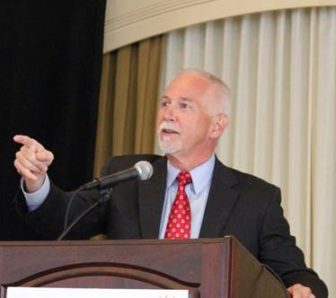
![]() The Robert F. Kennedy National Resource Center for Juvenile Justice convened critically important virtual conferences with juvenile justice leaders and practitioners in late June to start in King County (Seattle) and advance in Hennepin County (Minneapolis) our collaborative partnerships to address youth justice transformation on behalf of the youth and communities in those jurisdictions. Among other positive outcomes, these partnerships will provide excellent opportunities to measurably affect the over-representation of minority children and youth through real policy, practice and systemic change.
The Robert F. Kennedy National Resource Center for Juvenile Justice convened critically important virtual conferences with juvenile justice leaders and practitioners in late June to start in King County (Seattle) and advance in Hennepin County (Minneapolis) our collaborative partnerships to address youth justice transformation on behalf of the youth and communities in those jurisdictions. Among other positive outcomes, these partnerships will provide excellent opportunities to measurably affect the over-representation of minority children and youth through real policy, practice and systemic change.
During the pandemic, we have initiated or continued our dynamic, field-based, system transformation partnerships with 15 additional state or county jurisdictions across the United States and the territory of Guam — and we are making a real difference on behalf of youth, families and their communities. These include: Milwaukee County, Wis.; Cobb County, Ga.; Dutchess County, N.Y.; Clark County, Nev. (Las Vegas); and, Lancaster County, Neb. (Lincoln), among others. Our community partners have been critical to that success. They include law enforcement, schools, treatment providers and positive pro-social supports (e.g., mentors, sports leagues, etc.).

John Tuell
In November 2019, the RFK National Resource Center announced the new Alternative Response Initiative and accompanying workbook to specifically target support to state and local jurisdictions in their efforts to develop or enhance their system of alternative responses to formal prosecution. With this approach, and particularly in this dynamic period of transformation, we seek to support the creation of a comprehensive system of diversionary practices and collaborative system approaches to create sustainable community and agency partnerships that protect public safety, ensure accountability and take advantage of restorative justice principles.
When developing this robust system of alternatives to formal prosecution, the state or local jurisdictional leaders, key stakeholders and community must engage in collaborative planning and use the tenets of implementation science to ensure:
- sustainable opportunities to preserve limited probation and court resources for the population of youth who do require ongoing oversight (right-sizing caseloads and preserving valuable resources for higher-risk-needs youth)
- minimizing entry into the juvenile justice system for youth who may be held accountable more effectively through evidence-informed alternative services and community-based interventions
- maximizing of opportunities to produce, sustain and effectively measure positive outcomes for low- and moderate-risk youth.
This approach presents the distinct opportunity to demonstrably impact minority over-representation and racial and ethnic disparities while creating new and dynamic justice-community partnerships that balance youth accountability, victim rights and public safety. Consistent with the RFK National Resource Center’s effective history of field-based training and technical assistance partnerships that have been guided by the seminal frameworks in the areas of probation system transformation and dual status youth reform, the Alternative Response Initiative involves a five-step process:
- Preparation and mobilization
- Introduction and analysis
- Ongoing analysis and findings
- Action planning
- Implementation
We use this proven framework to bring state and/or community partners together to create locally driven, impactful solutions — that rely on research, evidence, data and local experience — to produce fair, equitable, sustainable and measurable solutions. We encourage you to access our Alternative Response Initiative Workbook to learn how you can take immediate action or mobilize your juvenile justice community to act on behalf of your youth and jurisdiction.
The RFK National Resource Center has been active in the field through our intensive technical assistance and training partnerships with more than 40 state and local jurisdictions that have produced actual — not theoretical or potential — transformative change. We believe this is a time to act.
Through guidance provided by our proven frameworks and the countless innovative and courageous juvenile justice leaders with whom we continue to work to ensure we export their replicable and impactful solutions, we acknowledge and embrace our leadership role in this current environment. We welcome new partners in our passionate quest to ensure a positive future for all youth and the well-being and safety of their communities.
John A. Tuell is the executive director of the Robert F. Kennedy National Resource Center for Juvenile Justice, with the Robert F. Kennedy Children’s Action Corps.
The Alternative Response Initiative Workbook and Probation System Review Guidebook, 3rd Edition resource materials are available in downloadable PDF format at:
https://rfknrcjj.org/our-work/alternative-response-initiative/
https://rfknrcjj.org/our-work/probation-system-review/
You are invited to take advantage of these free downloads to learn more about how you and your community can make a difference on behalf of the children, youth and families and your community.